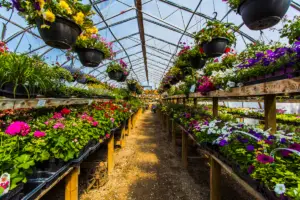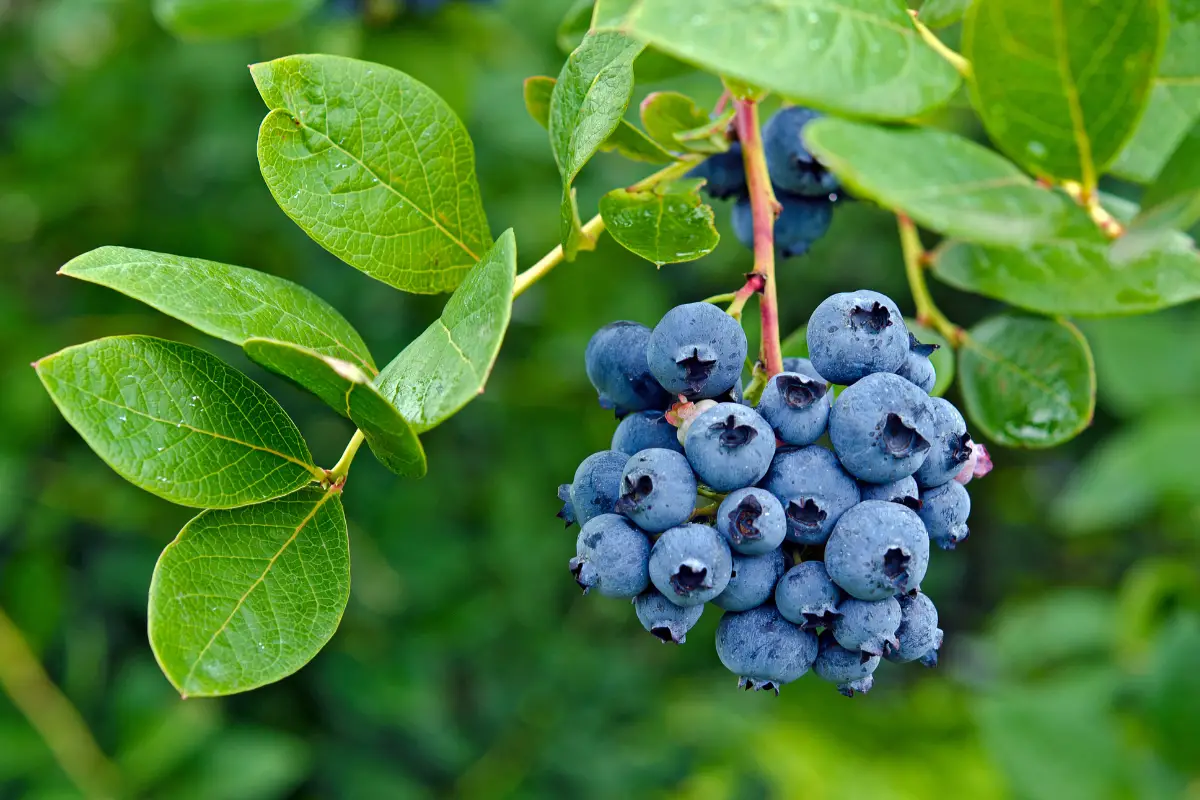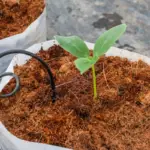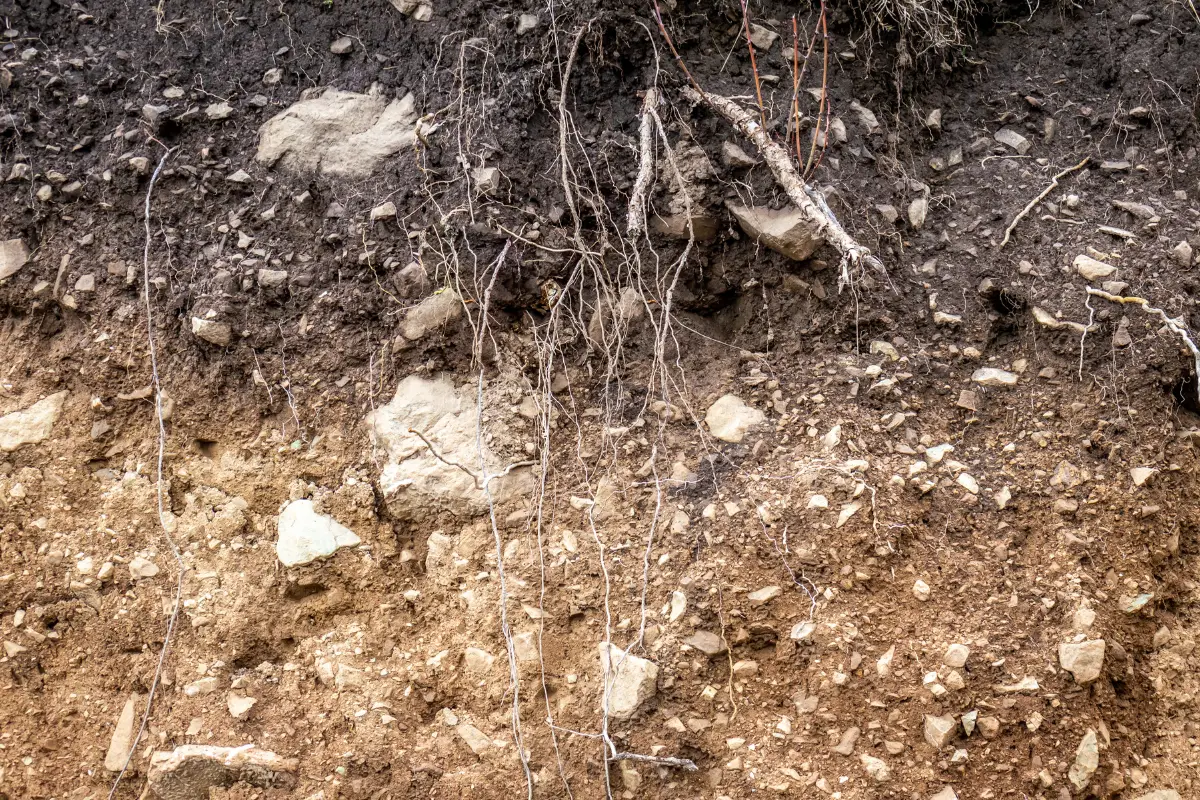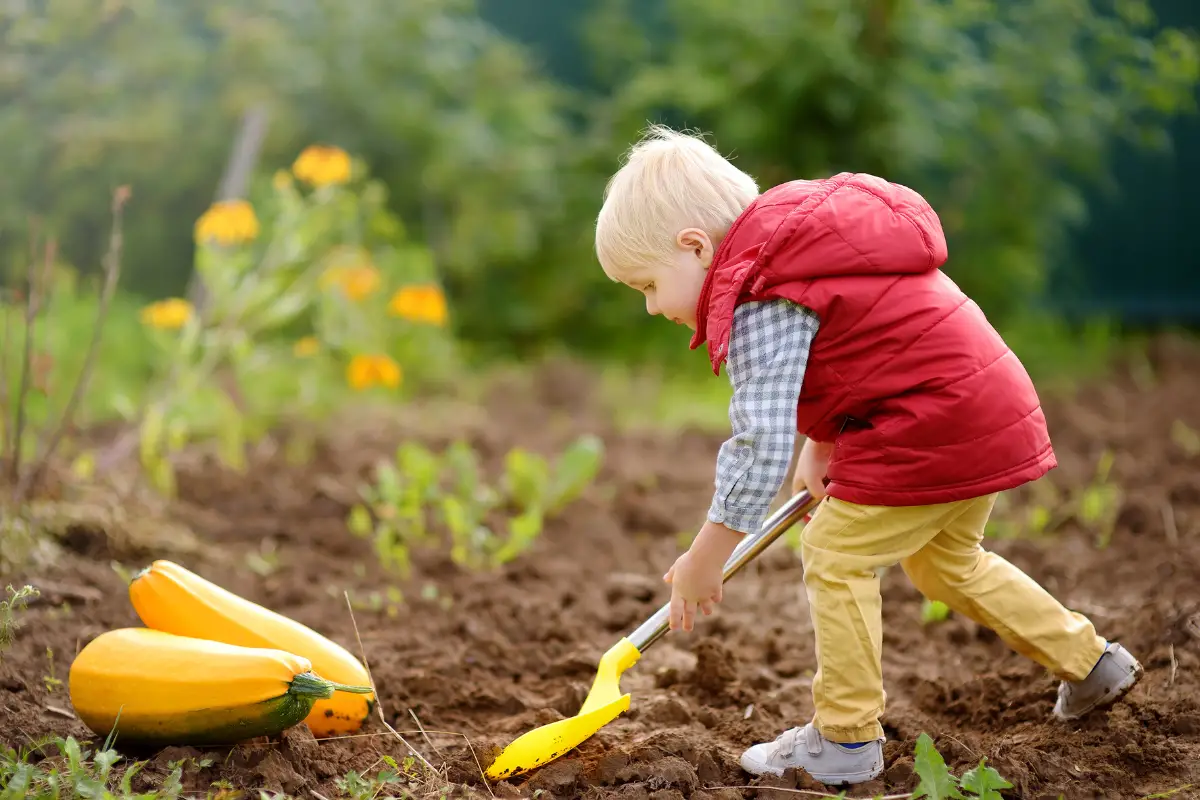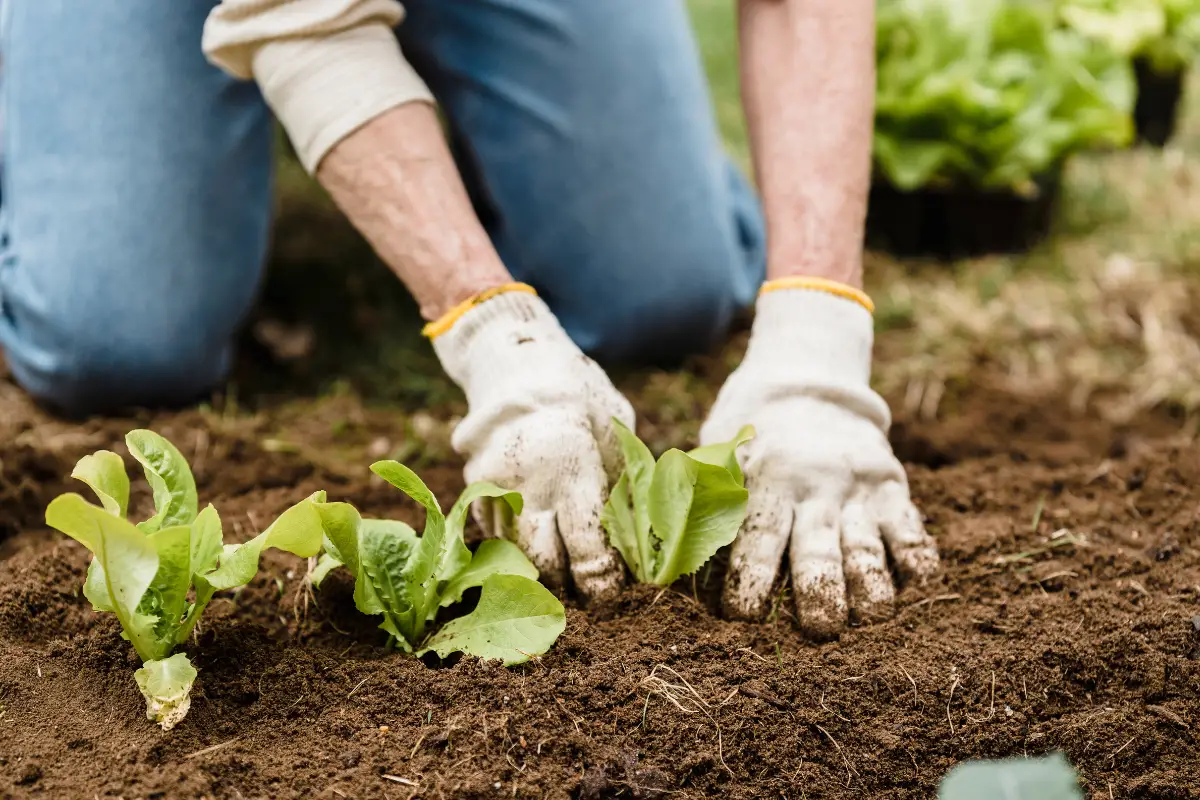Chalky soil is a type of soil that is characterized by its alkaline and free-draining nature.
It is formed from the accumulation of calcium carbonate in the soil, which gives it a distinctive white color.
Chalky soils can be found in many parts of the world, including the United Kingdom, the United States, and Australia.
One of the key characteristics of chalky soil is its alkaline pH level, which is typically above 7.
This can make it difficult for some plants to grow, as many prefer a more neutral or acidic soil. However, there are many plants that thrive in chalky soil, including lavender, thyme, and rosemary.
These plants are well-suited to the dry, nutrient-poor conditions that are typical of chalky soils.
Another characteristic of chalky soil is its variable texture. It can range from gravelly to clay-like, with the clay-like element often being mainly finely divided calcium carbonate.
This can make it difficult for plants to establish roots and obtain nutrients from the soil. However, where true clay is present in the soil, nutrient levels may be higher and the water holding capacity greater.
Understanding the characteristics of chalky soil is important for gardeners and farmers, as it can help them to choose the right plants and cultivation methods for their soil type.
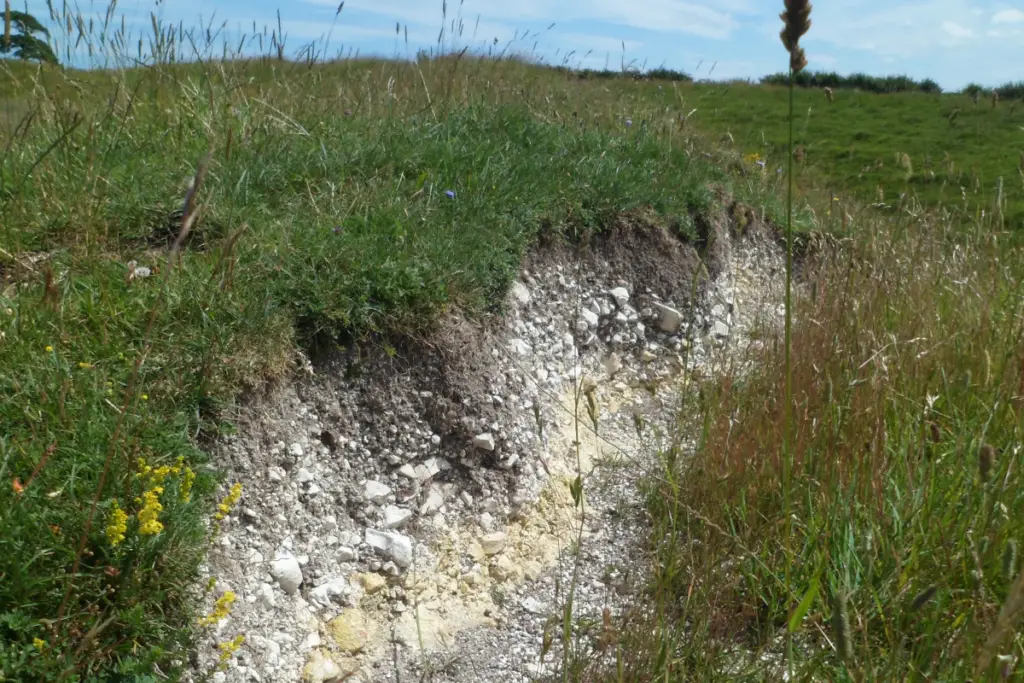
Table of Contents
Basics of Chalky Soil
Chalky soil is a type of soil that is rich in calcium carbonate, which is derived from the remains of marine animals and shells.
It is usually alkaline with a pH level between 7.1 and 10. Chalky soil is typically shallow, stony, and dries out quickly.
It is also free-draining, which means that it won’t get waterlogged, making it easier to work with than clay soil.
However, the downside of chalky soil is that it may not hold on to many nutrients, especially if it is thin.
This can cause some plants to struggle to grow in chalky soil. To grow plants successfully in chalky soil, it is important to understand its characteristics and how to work with it.
One way to identify chalky soil is to put a small amount of the soil in vinegar. If it froths, it is high in calcium carbonate and chalky.
Chalky soil can range from gravelly to clay-like, with the clay-like element often being mainly finely divided calcium carbonate, which makes it very poor for plant growth. However, where true clay is present in the soil, nutrient levels may be higher, and the water holding capacity greater.
Physical Characteristics of Chalky Soil
Chalky soil is a type of soil that is rich in calcium carbonate, which gives it a distinctive texture and appearance.
Here are some of the physical characteristics of chalky soil:
Texture
Chalky soil is typically made up of small, angular particles that are loosely packed. The texture of the soil can vary depending on the amount of organic matter present.
In general, chalky soil tends to be quite gritty and dry to the touch. This can make it difficult for plants to grow, as the soil does not retain moisture very well.
Colour
Chalky soil is usually a light grey or white colour, due to the high concentration of calcium carbonate.
The soil may also contain small fragments of chalk or limestone, which can give it a speckled appearance.
Drainage
One of the key characteristics of chalky soil is its excellent drainage. The soil is very porous, which means that water can quickly drain away.
This can be both a blessing and a curse for gardeners. On the one hand, it means that the soil is less likely to become waterlogged, which can be beneficial for some plants.
On the other hand, it can make it difficult to keep the soil moist, which can be a problem for plants that require a lot of water.
Chemical Characteristics of Chalky Soil
Chalky soil is alkaline in nature, with a pH level of 7.1 or above.
This means that it has a high concentration of calcium carbonate, which is derived from the underlying chalk or limestone bedrock.
As a result, the soil is often described as “hard” due to the presence of dissolved minerals in the water.
pH Level
The high pH level of chalky soil can have a significant impact on plant growth. Most plants prefer a slightly acidic soil with a pH level between 6.0 and 7.0.
However, some plants are adapted to the alkaline conditions of chalky soil and can thrive in this environment. These plants are known as calcicoles and include species such as Syringa.
Other plants, known as calcifuges, are unable to tolerate the high lime content of chalky soil and will not grow normally in this environment. Examples of calcifuges include Rhododendron.
Nutrient Content
Chalky soil is often low in nutrients such as nitrogen, phosphorus, and potassium. This is because the high pH level of the soil can make these nutrients less available to plants.
In addition, the soil is often shallow and free-draining, which can lead to nutrient leaching and loss.
However, there are many plants that are adapted to the nutrient-poor conditions of chalky soil and can thrive in this environment.
These plants are often drought-tolerant and have deep root systems that allow them to access nutrients from deeper layers of soil.
Examples of plants that can grow well in chalky soil include lavender, thyme, and rosemary.
Effects on Plant Growth
Chalky soils can have a significant impact on plant growth due to their unique characteristics.
In this section, we will explore the effects of chalky soil on plant growth, including nutrient deficiency and water management.
Nutrient Deficiency
One of the major challenges of growing plants in chalky soil is nutrient deficiency.
Chalky soils are typically high in calcium carbonate, which can cause a deficiency in essential plant nutrients such as nitrogen, phosphorus, and potassium.
The high pH levels of chalky soil can also limit the availability of certain micronutrients, such as iron, manganese, and zinc.
To combat nutrient deficiencies, gardeners can add organic matter to the soil, such as compost or well-rotted manure.
This can help to improve soil structure and increase the availability of nutrients.
Gardeners can also choose plants that are well adapted to chalky soil conditions and have a higher tolerance for nutrient deficiencies.
Water Management
Another challenge of growing plants in chalky soil is water management. Chalky soils are typically free-draining, which can cause plants to become water-stressed during periods of drought.
However, the high pH levels of chalky soil can also cause water to become alkaline, which can be harmful to some plants.
To improve water management, gardeners can add organic matter to the soil to increase water retention.
They can also choose plants that are well adapted to drought conditions and have a higher tolerance for alkaline soil.
In addition, gardeners can use mulch to help retain moisture in the soil and reduce water loss through evaporation.
Management and Improvement of Chalky Soil
Chalky soil can be challenging to manage and improve due to its high pH and low nutrient levels.
However, there are some techniques that can be used to enhance the soil quality and make it more suitable for plant growth.
Organic Matter Addition
One of the most effective ways to improve chalky soil is by adding organic matter.
Organic matter such as compost, leaf mold, manure, and peat moss can help to increase the soil’s water-holding capacity and nutrient levels.
These materials also improve soil structure and texture, making it easier for plant roots to penetrate the soil.
It is recommended to add organic matter to the soil in the fall or early spring. Spread a layer of organic matter over the soil and work it into the top few inches of soil.
This will help to improve the soil quality and prepare it for planting.
Proper Irrigation
Proper irrigation is essential for the growth of plants in chalky soil. Chalky soil is free-draining, which means it can dry out quickly.
Therefore, it is important to water the soil deeply and less frequently to ensure that the water reaches the plant roots.
One way to improve irrigation in chalky soil is by adding a layer of mulch over the soil.
Mulch helps to retain moisture in the soil and also helps to regulate soil temperature. This can be especially important during hot and dry weather conditions.
Conclusion
In conclusion, chalky soil is a unique type of soil that has its own set of characteristics that make it distinct from other soil types.
It is typically alkaline, well-drained, and has a high calcium carbonate content. Due to its unique properties, chalky soil can be both beneficial and challenging for plant growth.
While some plants thrive in this soil type, others may struggle due to its high pH levels and lack of nutrients.
However, with proper soil management techniques such as adding organic matter and adjusting pH levels, gardeners can successfully cultivate a variety of plants in chalky soil.
Understanding the characteristics of chalky soil is essential for gardeners who want to make the most of this unique soil type.
- How to Dry Basil Leaves: A Professional Guide
- Is an Avocado a Fruit or Vegetable? Simple Answer and Explanation
- Does Pineapple Have Seeds? Exploring the Anatomy of Pineapples
- Blooming Through Winter: Can I Grow Vegetables Indoors in the Winter?
- What Can You Grow in a Greenhouse All Year Round: A Guide to Year-Round Greenhouse Gardening
- Are Blueberries Blue? Debunking the Myth of Their Color





